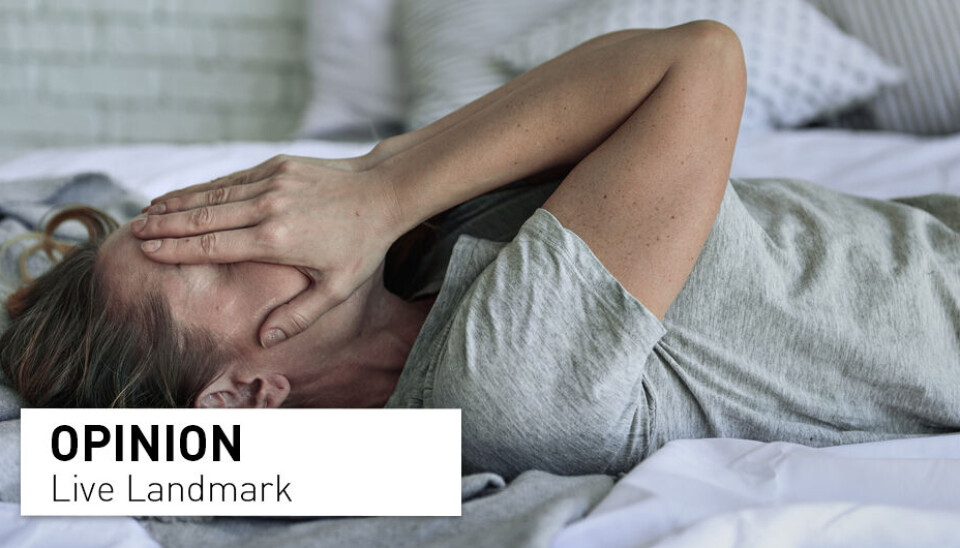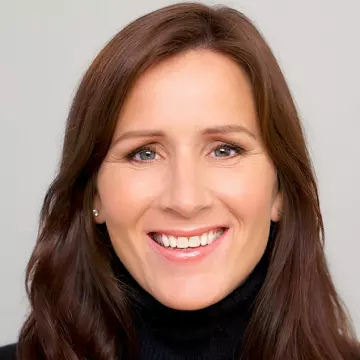Opinion:

The British guideline for CFS/ME is the result of activism, not research
OPINION: Unfortunately, the recommendations made in the new NICE guidelines for chronic fatigue were not based on the published research. This means that the Norwegian Directorate of Health can be confident in ignoring their suggestions.
There has been a long-term debate in Norway about the controversial condition chronic fatigue syndrome/myalgic encephalomyelitis (CFS/ME).
Sociology researchers try to understand the phenomena through a historical lens and in a cultural context.
Biomedical researchers try to explain the symptoms by investigating possible underlying processes from a biomedical angle. Doctors considering how the mind and body have a role in illness try to help the patients with rehabilitation strategies and research.
The poor quality of the guidelines
It is both good and important to try to understand CFS/ME from various perspectives, but lately, there has been an inappropriate emphasis on the new British guidelines, called NICE guidelines. This is unfortunate, as the UK guidelines for CFS/ME are not based on rigorous research. Instead, they were created by a committee, a third of which was made up of CFS/ME patients, members of ME associations and ME forums, also called the "ME community".
The committee has used "experience", "opinion" and "agreement" as a basis for its advice on how to manage this condition, instead of controlled treatment studies and systematic reviews (quantitative studies). Three of the professionals on the committee withdrew ahead of the publication, while one was asked to leave, as reported in the British Medical Journal.
The guidelines have since received massive opposition from the major professional bodies of the UK medical professions and have equally been criticized by a broad section of the Norwegian professional community (Aftenposten, in Norwegian).
The difference in experience and measured effect
It is great to listen to patient experiences and clinicans’ practice-based knowledge, but, as discussed in this study in British Journal of Health Psychology, this has to include the experience of those of us who have recovered from CFS/ME. Unfortunately, no one was representing those voices in the committee.
The members of the ME community consider CFS/ME to be a purely biomedical disease and reject any treatments that do not support their views on the cause of their symptoms.
It is also important to note that experiences can say nothing about the cause, effect of treatment or prognosis. As a result, guidelines for diseases or illnesses should therefore not be based on reports of experience. Such anecdotal reports are inappropriate for medical policy, and not consistent with modern health practice. Instead, decisions need to be based on an independent critical appraisal and summary of the research that has been done, including quantitative studies that were set up to rigorously assess both the effects and side effects of treatment.
However, during the process of creating these new guidelines, no researchers with relevant scientific expertise were invited to contribute, which is both unusual and incomprehensible. Therefore, instead of using rigorous treatment studies and unbiased systematic reviews, they based their recommendations on "agreement" in the committee, and a few experience-based studies and refer, among other things, to the "ME community".
The ME community and the polarization of the debate
The ME community is an Internet-based community, which has been described by Lian and Nettleton in this study. The study followed 14 ME forums over three years and revealed a virtual society with strong unity and a sense of belonging.
That is all well and good, but the challenge with such societies is that it creates a group identity, with clear divisions between "us" and "them". The consequence is that those who participate in such societies view the "others" as adversaries. This can contribute to the polarization of the debate, which affects both researchers and patients.
The members of the ME community consider CFS/ME to be a purely biomedical disease and reject any treatments that do not support their views on the cause of their symptoms. The attitude is that one must save energy and adapt activities, even if there is no scientific evidence to support it, as discussed in this study in The Lancet.
The norm in the online communities is that there is a strong pressure on what is allowed and what is not allowed to be said, and there is no room for dissent. Lian and Nettleton found no examples of reporting positive experiences of the healthcare services. They found that members spread knowledge that corresponded with their perception of reality and warned about the "danger of psychological treatment".
- RELATED: ME/CFS may be linked to failure in energy supply to the cells
- RELATED: Cancer drug helped patients with chronic fatigue syndrome (CFS/ME)
Diagnostic criteria
There are more than 20 sets of criteria for CFS/ME, where the different sets of criteria more or less overlap in the descriptions of fatigue and other symptoms. None of them have been validated, because no one can say what "real ME" is, but the Fukuda criteria (1994) are mostly used in research. A research group at the National Institute of Public Health in Norway assessed all the criteria. They did not find that one diagnostic set was better than the other and concluded that there was no basis for developing new diagnostic criteria. Research published in BMJ Open shows that the effect of treatment is independent of the diagnostic criteria.
The members of the NICE Committee, on the other hand, were concerned with the ME community. These patients believe that those who have recovered through psychological methods must have been incorrectly diagnosed with CFS/ME. The logic is: Those who recover from psychological methods cannot have had a biomedical disease. Thus, such experiences are rejected.
But the ME community represents a self-selected sample of patients. We do not know if they have been diagnosed with CFS/ME, by what criteria, or if they have diagnosed themselves. They, therefore, do not represent everyone with CFS/ME, and they exclude those of us who have recovered.
Criteria based on experience
The committee members nevertheless took their experiences and established new criteria, "NICE2021 consensus-based diagnostic criteria". These criteria are based on the patients' description of being tired, having concentration problems, sleeping poorly and experiencing worsening after activity.
The committee drew up guidelines based on its interpretation of qualitative studies, personal opinions and experiences from the ME community.
According to the NICE guidelines the diagnosis can be given after just three months of symptoms. In any case, the criteria are based on the committee members' "experiences", and it is telling that the guidelines conclude by encouraging research on the new criteria to see how good they are at identifying patients with CFS/ME.
- RELATED: Few physical differences found between healthy individuals and those afflicted by chronic fatigue syndrome
- RELATED: Norwegian researchers have tested music therapy for chronic fatigue
Qualitative studies
The problem escalated further when the committee members agreed on using these new criteria for CFS/ME as a basis when previously performed studies should be evaluated. As a result, the evidence in all studies on patients who met other diagnostic criteria (such as the Fukuda criteria) got downgraded through GRADE, a method for assessing the certainty of the evidence base. This contributed to the studies on cognitive behavioral therapy (CBT) and graded exercise therapy (GET) being ranked as being of "low" or "very low" certainty. The consequence was that the committee was then able to discount research studies that showed a benefit of these interventions.
When the committee's opinions resulted in the discount of evidence, they should have refrained from making guidelines until one had a more solid scientific basis from more research. Instead, the committee drew up guidelines based on its interpretation of qualitative studies, personal opinions and experiences from the ME community.
Normally, such experiences are used as a basis for developing hypotheses, for example, whether one believes that a treatment works or not. The hypotheses then form the basis for conducting larger studies that measure the effect of treatment, such as in quantitative studies. It is only in such studies that one can confirm whether a treatment has an effect or can be harmful. And it is only through systematic reviews, which involve a report on several such studies, that one can see the problem as a whole.
“Disastrous misapplication”
In the case of both cognitive behavioral therapy (CBT) and graded exercise therapy (GET), several randomized controlled trials have been performed on thousands of patients with CFS/ME. The studies, and the systematic reviews, show that the treatments have an effect and no serious side effects have been reported.
The committee's opinions nevertheless caused a downgrading of all these studies. This action was immediately attacked by those who developed the GRADE method they had used calling it a "disastrous misapplication" of the GRADE procedures to develop guidelines.
Undocumented and unscientific advice
As a result of these concerning events, it is the committee members' assessment of experiences and their own opinions, and not rigorous research, which has resulted in the British guidelines being changed and no longer recommending cognitive behavioral therapy (CBT) as treatment for CFS/ME, nor graded exercise therapy (GET) or the Lightning Process, despite the fact that research has shown effect for all of these interventions.
In practice, British patients with CFS/ME have now been deprived of opportunities to help them rehabilitate and recover. This is not what we want in Norway.
Conflicts of interest:
Live Landmark has an assistant position in her own company, where she is, among other things, an instructor in the Lightning Process course. Landmark is a former patient with CFS/ME/PWFS.
Share your science or have an opinion in the Researchers' zone
The ScienceNorway Researchers' zone consists of opinions, blogs and popular science pieces written by researchers and scientists from or based in Norway. Want to contribute? Send us an email!





























